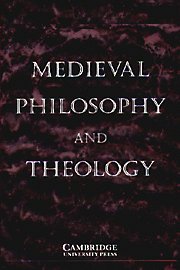No CrossRef data available.
Article contents
IV. GOD AS NATURE’S GOAL
Published online by Cambridge University Press: 10 April 2002
Abstract
1. Reorientation
At the end of Book III’s first, introductory chapter, Aquinas divides his projected investigation of divine providence into three big topics, the first of which he characterizes as having to do with “God himself in so far as he is the end of all things,” God’s omega-aspect (1.1867b).197 Since III.64 is unmistakably the beginning of Aquinas’s investigation of the second big topic, God’s universal governance, it looks offhand as if he intends to devote chapters 2–63 to his treatment of God as the universal goal.198 In the first two of those chapters Aquinas does carry out a general investigation of the nature of agents, actions, and ends that makes an altogether appropriate preamble to a consideration of his thesis that God is (somehow) the unique, universal, ultimate goal of the actions of created agents.199 However, as we’ve just seen, Aquinas’s chapters 4 through 15 constitute a treatise on badness. God is mentioned only briefly in the twelve chapters that make up the treatise, and it’s unclear how, if at all, Aquinas intends his analysis of badness to contribute to his consideration of God as goal.200 So, setting aside the uncertainly relevant treatise on badness, it seems right to say that Aquinas’s investigation of God’s omega-aspect occupies not III.2–63 but just III.2–3 and 16–63.201 Within that latter series of chapters, he devotes III.16–24 to God as the goal of created things generally, the topic of this chapter, and III.25–63 to God as the ultimate goal of human beings specifically.
- Type
- The Metaphysics of Providence: Acquinas’s Natural Theology in Summa contra gentiles III
- Information
- Copyright
- © 1999 Cambridge University Press


